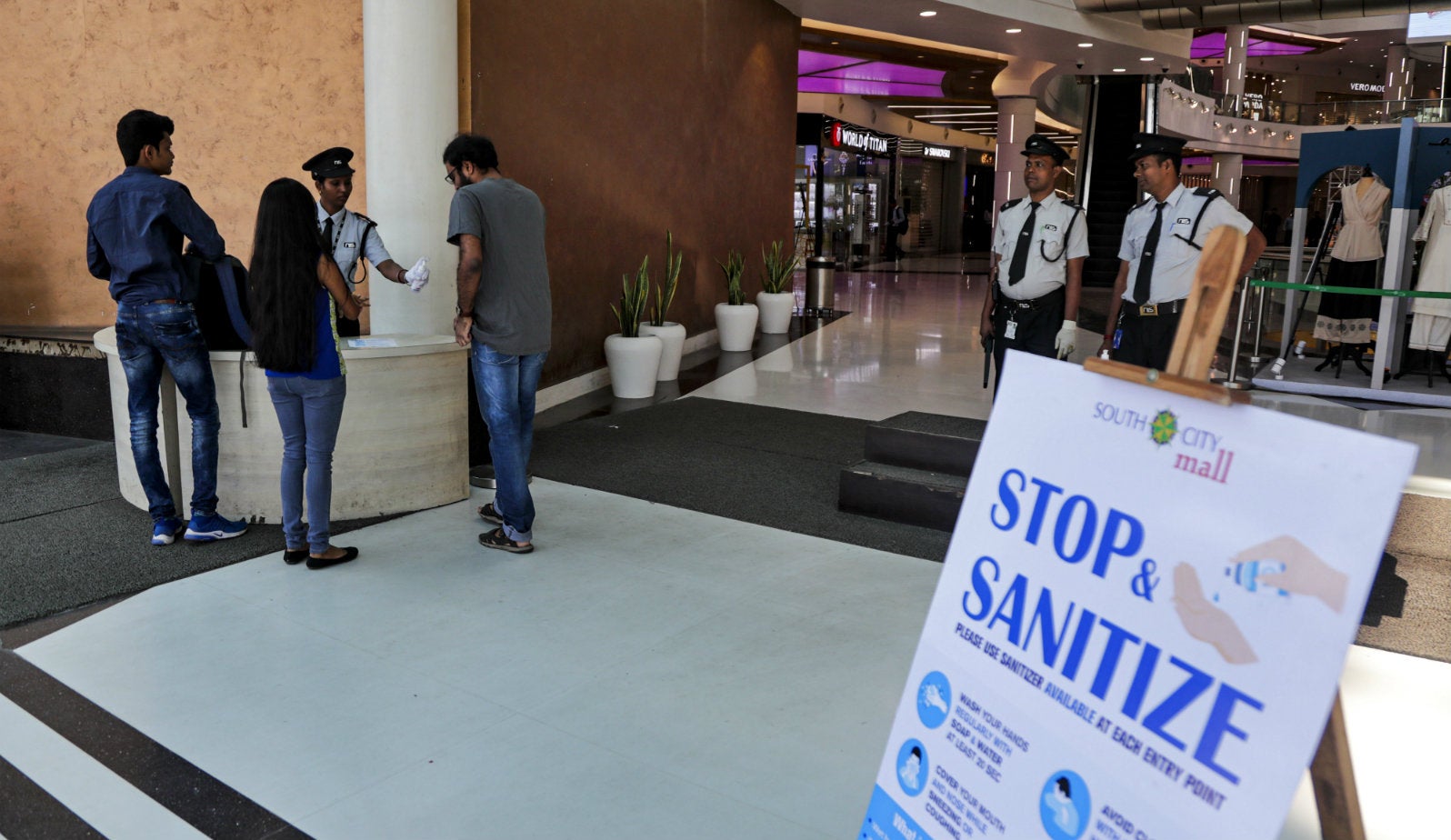Covid-19 is crippling Indian restaurants and retailers—and it’s still early days
With more and more Indians avoiding crowded places as a precaution against the coronavirus outbreak, the retail and restaurant industries in India may be in for a nightmare.


With more and more Indians avoiding crowded places as a precaution against the coronavirus outbreak, the retail and restaurant industries in India may be in for a nightmare.
Shopping malls in several parts of the country are already seeing an up to 20% decline in footfall. In Chennai, Bengaluru, and Mumbai, state authorities have mandated malls to close altogether.
The top eight cities of India have 126 malls, according to Anarock Retail, a Gurugram-based real estate services company. “The closure of malls and multiplexes…has brought organised retail to a grinding halt. Even a short-term closure will have significant financial implications on retailers,” Anuj Kejriwal, Anarock’s managing director and CEO, told Quartz.
At eateries, there has been a 40% fall in customers in the last 15 days, according to the Federation of Hotel & Restaurant Associations of India (FHRAI). “This figure could go up to 80% with more coronavirus cases likely to be reported in India,” said Gurbaxish Singh Kohli, vice-president of FHRAI.
Surviving amid slump
Some of India’s most favoured brands have fallen victim to the coronavirus-triggered slowdown.
For instance, women’s fashion brand Forever New said footfall at its four outlets—SelectCity Walk (Delhi), Ambience Mall (Gurugram), DLF Mall of India (Noida), and DLF Promenade (Vasant Kunj)—has fallen 25% in the past four weeks.
Similarly, cricketer Sachin Tendulkar-backed indoor entertainment chain Smaaash’s revenue has fallen 35% in the past one month. “The coronavirus outbreak has led both business and leisure guests to halt their outings and travel,” said Jaydeep Ray, general manager, marketing, Smaaash.
At fast food chain KFC, sales have dropped 15-20% sequentially over the past couple of weeks, its India managing director Samir Menon, told the Economic Times on March 10.
Ditto for 1441 Pizzeria, which runs stores in Mumbai, Pune, Bengaluru, and Ahmedabad. “Sales are falling daily. In the first two weeks of March, we have taken a hit of 20% on dine-in,” said Krishna Gupta, managing director, of the chain. “Holidays and festivals are traditionally a good time. This Holi, our sales dropped 30% year-on-year,” he added.
Eateries in tourist cities have taken a hit also because of the government’s decision to suspend all visas till April 13. For instance, Beep, a popular rooftop eatery and bar in Agra has witnessed a 40% dip in sales in the first week of March, according to Vinayak Gupta, chef and partner, Beep Agra.
“We expect the restaurant segment to take a hit of about 25-30% in coming weeks with people working from home, lack of corporate clients, cancellation of banquets, and events,” said Satish Meena, senior forecast analyst, Forrester.
Containing the damage
Stakeholders in restaurant and retail business are taking measures to minimise damage caused by the deadly coronavirus outbreak.
Forever New is focusing on online sales in a bid to make up for revenue losses in its brick-and-mortar stores.
Meanwhile, FHRAI is hoping to get patrons to step out by assuring them of their safety. “We have asked all our restaurant members to remain vigilant. Staff across restaurants is being trained to safely handle customers by following hygiene routine being promoted by the government. People in the industry are also being trained to calm down customers and encourage them not to spread rumours,” said Kohli.
Also, restaurants individually, too, are fighting Covid-19 threat.
“Each crew member at our place has been designated with a specific task to keep all raw materials, cutlery, crockery, furniture etc sanitised,” said Gupta of Beep.
Smaaash is using thermal heat temperature guns to measure customers’ body temperature. It is also sanitising all contact points inside its kitchen and bar area.
Painful recovery
Even so, both the F&B and retail industries will take time to recover and have to make some tough calls to contain losses, say industry players and analysts.
“With the spread of coronavirus, the sales and footfall will continue to see a downward slide for at least eight to 12 more weeks. We expect resurgence only in late 2020,” said Dhruv Bogra, country manager of Forever New.
Meanwhile, Mumbai-based Care Ratings says industry stakeholders must make some tough decisions.
“With declining sales, players will have to control their fixed expenditure such as employee cost, power, and rentals. As a first step towards this, malls and restaurants could reconsider their operational hours to minimise the impact of falling footfall and lower sales,” said Darshini Kansara, deputy manager, industry research, Care Ratings.